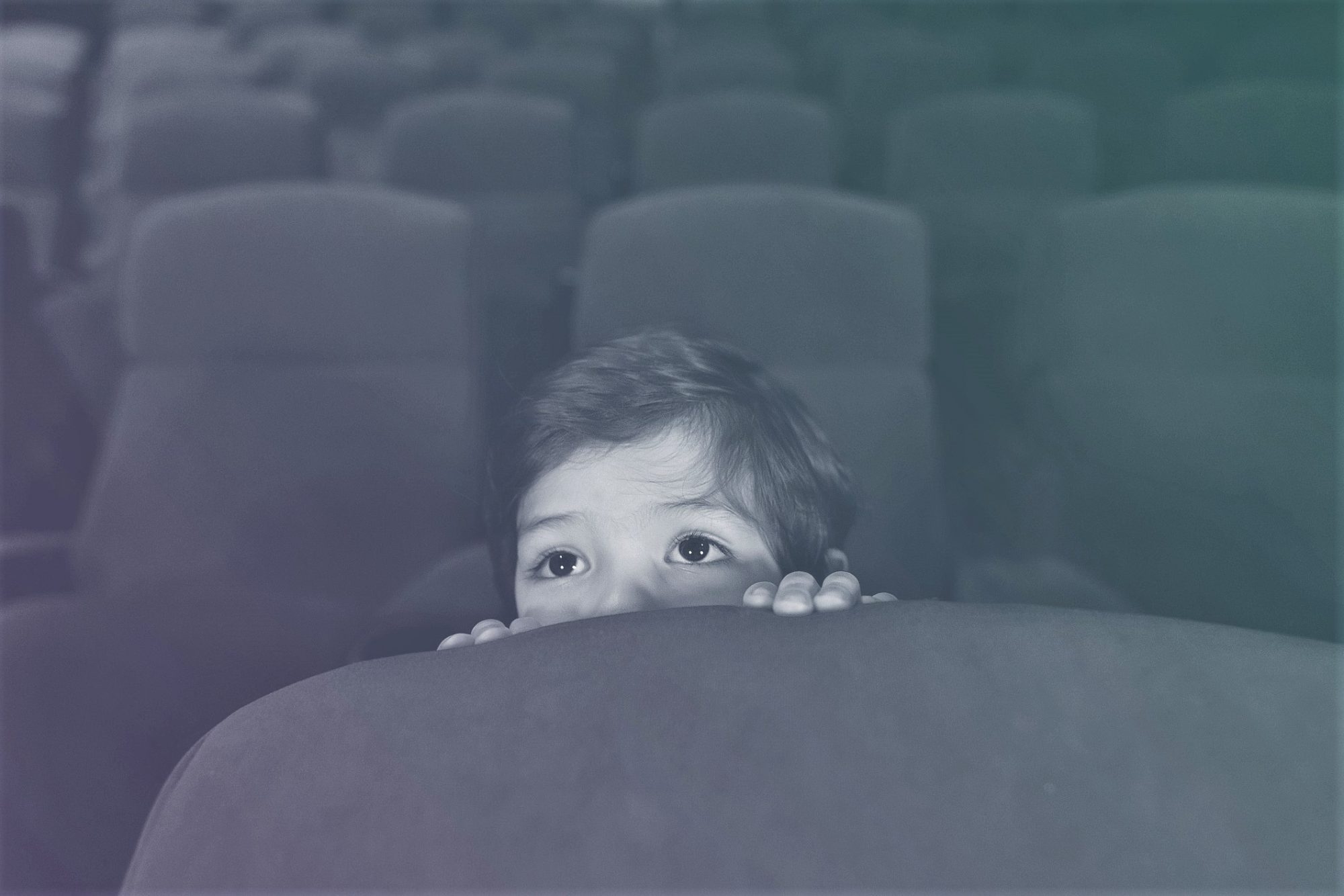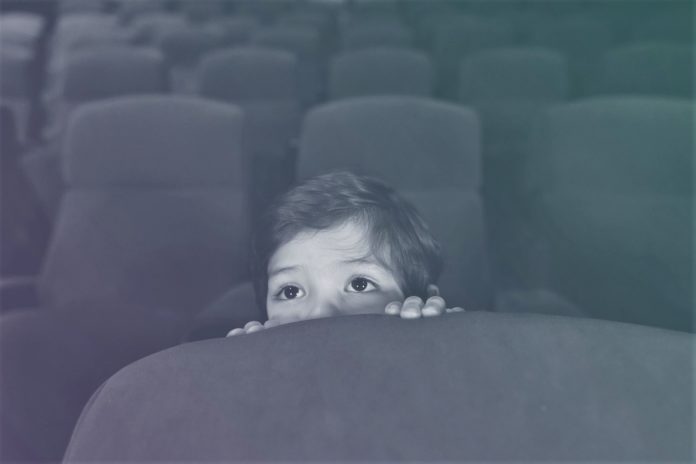When my sixth grader asked me if she could watch Stranger Things, a dark sci-fi series on Netflix, I immediately said no. "Are you kidding? It's way too scary," I told her. The latest season featured a monster so gruesome, the visual effects team had to tone down the disgust factor.
In normal times, maybe I wouldn't have been so quick to tell my daughter she couldn't watch a scary series. But these aren't normal times. As the coronavirus pandemic drags on, a lot of kids are dealing with increased anxiety. I worried that adding a frightening show to the mix would only fuel more fear.

Then I came across a study suggesting that fans of horror movies are faring better psychologically during the pandemic. "If things are scary in the world, for some people it seems to make sense to overcome something scary on a television show, video game, or book," says the study's lead author Coltan Scrivner, a Ph.D. candidate in the department of comparative human development at the University of Chicago.
The study's authors write, "One reason that horror use may correlate with less psychological distress is that horror fiction allows its audience to practice grappling with negative emotions in a safe setting." Does this mean shows like Stranger Things could be good for kids?
Scary Movies Can Build Resilience
Scrivner's research focused on adults, so it's not clear whether kids who watch scary movies will experience the same psychological benefits. But from a developmental standpoint, learning to cope with fear does help children build resilience, says Shelli Dry, OTD, the director of clinical operations at Enable My Child, a pediatric therapy provider.
On Halloween, when kids dress as scary characters and go trick-or-treating, "that's kind of a healthy fear," says Dr. Dry. This experience "helps develop a little bit of resilience in the child because it lets them practice being scared and then recovering from being scared."
Watching a scary movie is another opportunity to feel fear and navigate through that emotion in a relatively controlled environment. It also enables us to practice empathy and perspective-taking, says Scrivner. When kids witness how fictional characters cope with frightening situations, they can learn to cultivate their own attitude of survivorship.
Another interesting note: "Part of developing resiliency is being able to identify the positives, and identify the coping strategies," says Dr. Dry. During quarantine, my kids and I ended up watching Harry Potter and the Deathly Hallows, the final—and objectively most frightening—installment in the Harry Potter movie series. The film has a horrifying villain and a lot of intense moments, but it also showcases the protagonists' bravery, friendship, and love.
Consider Your Kid\’s Fear Factor
So should you cue up that classic horror movie for your child this Halloween? The answer will differ for every family.
Parents first need to consider their family's values, says Dr. Dry. Are scary movies something you allow and enjoy watching in your household? If the answer is yes, evaluate your child's readiness. While there is no absolute age at which scary movies are appropriate, Dr. Dry recommends not introducing them to very young children because of the potential to create long-term anxiety. Around age 4, kids are figuring out how to manage fears that naturally develop in childhood, and layering scary movies on top of that could be overwhelming.
Next, consider your child's personality and interests. "Some children are pretty good at saying, 'That's not real,' and they're pretty matter-of-fact," says Dr. Dry. Others are more sensitive and take longer to recover from viewing something scary. Recognize, too, that what one child finds scary may not bother another. A film about cats or bees could be delightful or terrifying depending on who is watching.
With my own children, I've noticed different attitudes toward scary media. When my kids asked to see a picture of the Demogorgon—the sinister, faceless monster from Stranger Things—I pulled up an image on my phone. My 11-year-old recoiled in disgust, but my 9-year-old seemed unperturbed and commented that the creature looked like a weird flower. Their reactions offered clues about whether they're ready to watch the show or if we should wait a bit longer.
Prepare Your Child for Scary Movies
We can't predict how our kids will react to a scary movie, but we can increase the likelihood it will be a positive experience.
Preview or at least be familiar with the movie your child wants to watch, so you have a sense of whether it might be too much. If the horror genre is new for your child, both Scrivner and Dr. Dry suggest starting with a film that's not too scary and watching it with your child. This could be a cartoon or animated film like The Nightmare Before Christmas or Monsters, Inc. You can even watch the movie during daylight hours to reduce the fear factor.
During the movie, acknowledge when something scares you and share with your child how you cope. "The parents' reaction and how they handle that is so important," says Dr. Dry. There's no need to be overly emotional, but don't feel you have to be stoic, either. My kids have seen me cover my eyes or look away during grisly Harry Potter scenes, so they know that adults experience fear during movies, too—and that's OK.
Whether you're viewing the movie with your child or not, remind kids they always have the option to leave the room or turn the show off. Be prepared to talk about the film with your kids afterward to help them deconstruct any elements that were disturbing or intense.
How can you tell if a movie is too scary for your child? An increase in nightmares or night terrors, trouble falling asleep, and fear of strangers, the dark, or being left alone are red flags, particularly if your child did not exhibit these behaviors before seeing the movie, according to Dr. Dry.
Most often, this anxiety is short-term and will resolve, but it indicates the child might not be ready for scary movies just yet. "You do have to know your child and know when to say, 'OK, this is too early for you. We can try this again when you're a little bit older,'" says Dr. Dry.
Are there any horror movies that are totally off-limits for children? If a film still terrifies you as an adult, it's probably not a good choice for your kids. With that in mind, I won't be introducing The Exorcist or The Ring to my tweens. But if they want to watch when they're much older, I might join them—with my eyes half-covered.
The Best Scary Movies for Kids
Want to try watching horror movies with your kids? From animated films to 1980s favorites, here are some options to consider, ranging from mildly spooky to extremely creepy.
The Nightmare Before Christmas: In this animated film, Jack Skellington, the Pumpkin King, decides he's bored with Halloween and wants to be Santa Claus—and chaos ensues.
Labyrinth: Sarah resents her baby stepbrother, but when he's kidnapped by the Goblin King, she makes up her mind to save him.
The Goonies: To save the neighborhood from foreclosure, a group of kids hunts for a legendary treasure, confronting some creepy characters along the way.
Goosebumps: In this movie, based on the middle-grade horror books by R.L. Stine, teenagers unearth mysterious manuscripts and accidentally let monsters loose in the real world.
Coraline: When her family moves to a new home, Coraline uncovers a passage to an exciting world, but its inhabitants aren't as benevolent as they initially seem.
Gremlins: After Billy's father brings him a new, exotic pet, Billy learns the cute creatures have a sinister side.
Beetlejuice: A deceased husband and wife seek help from a mischievous demon in order to reclaim their house from the residents who want to remodel it.
Harry Potter Series: Based on the books about a boy who discovers he's a wizard, the series features eight movies that become progressively darker and more intense.
The Sixth Sense: A boy has a frightening secret: He can see dead people. But a gifted psychologist wants to help him.
The Bottom Line
Watching scary movies can help build resiliency, but not every kid is ready for them. Consider how easily your child gets spooked—every kid is different despite their age—in order to decide what level of horror they can take, if any. And pay attention to changes in behavior after watching scary movies, like nightmares or fear of the dark, which indicate it was probably too scary for your little one.













